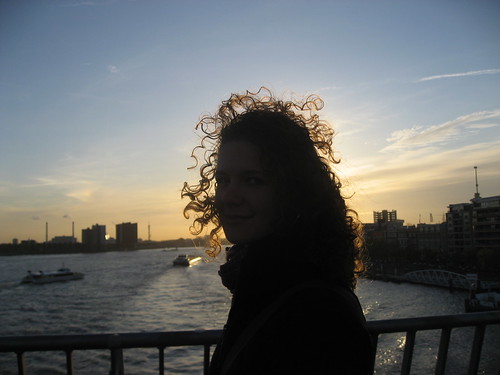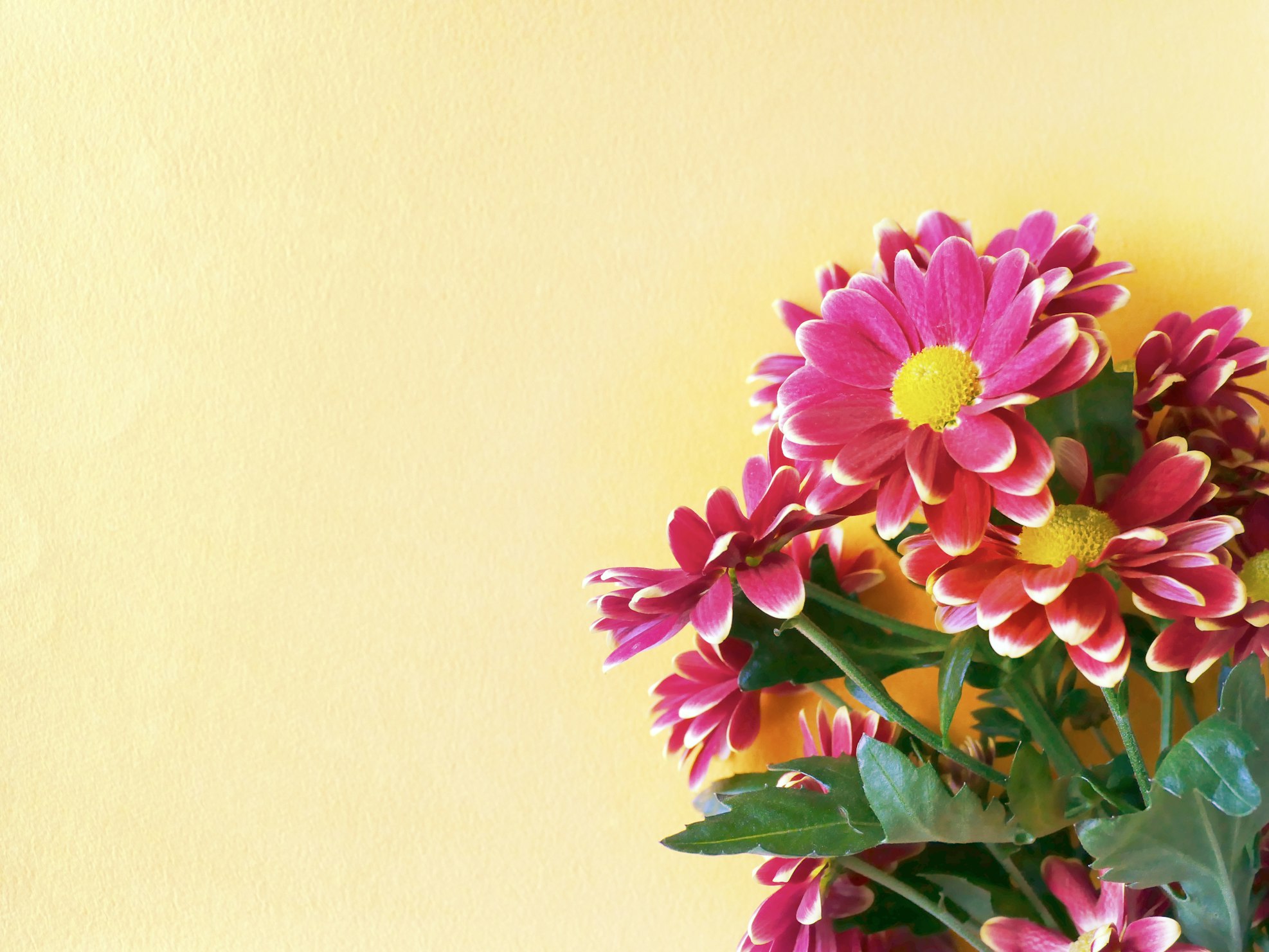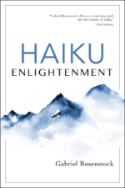
|
Medusa by Ivan M. Granger |
Medusa says —
I was wisdom
once,
black as night.
Now they call me:
monster,
gorgon,
hideous-faced.
So I hide
behind this hissing curtain
of hair.
Lost
little ones,
breathe easy;
you are free
to not see.
But
what is a lonely
old lady to do?
I still wait
for some daughter,
some son,
so wounded by the world,
to seize these snakes
and part my locks wide.
I still wait
for some bold, tired
wild child of mine,
determined to die
seeing what's reflected
in my unblinking eye.
| -- from Real Thirst: Poetry of the Spiritual Journey, by Ivan M. Granger |

/ Image by Emanuello Brigant /
View All Poems by Ivan M. Granger
Something to honor the Divine Goddess (and Halloween!) today--
Every now and then I awake early, before the sun. Observing the nighttime before dawn, its embodiment of mystery, the unknown, vastness. Night brings both peace and fear. It does not distract us from ourselves. Whatever we bring with us into the night we must confront...
I read a lot of Greek mythology in my childhood. I loved the fantastical adventures, the heroes, the monsters, the convoluted relationships of the gods. I was fascinated that so many common words and phrases have their origins in the names and stories of Greek myths. It connected me with the Greek ancestry I have through my father.
And I also had the vague, semi-formed idea that there was something deeper being said in these myth stories.
I discovered something several years back that struck me: Medusa, the quintessential monster of Greek mythology, was originally a much loved Goddess. Her name comes from the Greek word "metis" (related to the Sanskrit "medha") meaning "wisdom." Her worship is thought to have originated in North Africa and been imported into early Greek culture. She was black-skinned, wore wild, matted hair (with, of course, snakes), stood naked, wide-eyed, and embodied the mystery of woman, the wisdom of the night, the truths too profound or terrible to face in the daylight.
Medusa is, in effect, a Mediterranean version of the Bengali Goddess Kali.
Medusa was eventually subsumed into the safer, patriarchal worship of Athena, who carries Medusa's head upon her shield.
This discovery inspired me to look at the figure of Medusa more deeply, more reverently. What is the wisdom that terrifies? Why the snakes? Why the petrifying open-eyed stare? And how does such a bringer of terrible wisdom feel about being rejected by her children as a "monster"?
So I hide
Behind this hissing curtain
Of hair.
One way to understand the snakes about Medusa's head is as the awakened Kundalini energy, having risen from the base of the spine to the skull -- something well-understood in the Mediterranean mystery schools of the ancient world. This vital, snake-like energy is the Goddess energy. Medusa, the Goddess, is the Snake Mother.
(The more monstrous aspect of Medusa can also be understood as a rageful expression of the Kundalini, the Divine Feminine energy, when it is repressed in society. A society that does not respect the strength and mystery of Woman, that does not allow the feminine energy to move freely, that society is lost in a state of calcifying fear. Too many societies see only the terrible Gorgon when looking at the Divine Mother.)
In my poem, Medusa has formed of this feminine life-energy a curtain, a veil that hides Her Face from a world not ready to bear witness to Her. This curtain is the veil of illusion that creates an artificial sense of separation between the world and the Divine.
And the curtain does indeed hiss. When you are quiet and your thoughts settle, we begin to hear a soft sound seeming to issue from the base of the skull. Initially, it sounds like a creaking or crackling noise, a white noise, a sort of a hissing. The deeper we go into silence, the more the sound resolves itself. Eventually, we recognize it permeating our whole body and all things.
We must pass through this hissing curtain in order to meet the deep truth waiting for us on the other side.
I still wait
For some bold, tired
Wild child of mine,
Determined to die
Seeing what's reflected
In my unblinking eye.
Medusa's eye does not blink. This is partly what is so terrifying about her gaze. She stares boldly out and sees Reality as it is. She sees it plainly, fearlessly, and without interruption. There is no pause for interpretation or "filtering." Medusa's truth is raw. She is the Divine Mother who sees all of Her Creation in every living instant.
Looking in Medusa's eye, what is it that we see reflected? Our own self, of course. And this truly is shattering, for we see the truth about ourselves. We see the unreality of the little self, the social self, the ego self we imagine ourselves to be. That little self is a phantom, a mental creation only.
Medusa, in her shattering wisdom, does not protect us from this realization. Her love will not allow us to struggle on with such a false notion holding us back from our true nature.
Seeing this truth, we die. The little self dies.
But, in dying to the little self, our true nature suddenly shines forth. The real Self, which is one with the Divine, emerges. Every aspect of ourselves that felt broken and that we labored so long to fix, is suddenly made whole. In fact, we realize that nothing was ever broken in the first place. That sense of incompleteness was the result of denying the vastness we already are while clinging to the illusion of the little self.
This is Medusa's gift to Her children. This is Her terrible wisdom. It is the truth that blesses us through death, and then gives us greater life than we had previously imagined possible.
-
Halloween, Samhain, el Dia de los Muertos. The ancestors speak to us at this time, as do our fears. In this season we face the darkness, the unknown. We rediscover the hard truths we've exiled and encounter the possibilities we haven't yet dreamed.
As a child, Halloween was always one of my favorite holidays. I loved the masks and costumes, toying with notions of self and identity, a game of hide-and-seek with the world. I loved the season, the chill breeze and thick sweaters, bare branches with a few bright leaves, the brilliant daylight, bold and brief, streaming through. And, I have to admit, I loved the giddy, creeping sense of death... along with the whispered question of what might lay beyond it.
Spirits, magic, monsters, and nighttime, they evoked in me a childish delight in the sense that there was something more to the world than seen in the daylight, something hidden, secret, another reality in the shadows. I felt the holiday tugging at me, my goosebumps an invitation into secret worlds...
It is said that at this time of year the veil between this world and the Otherworld thins, when we can reconnect with the spirits of our forerunners, when we can gain unexpected insight. It is a time of magic and reconnection and stepping into the unknown.
This is the time of year when the light of summer and the harvest season recedes, the days grow shorter, and the darkness of winter takes ascendance. This is the good darkness that balances the year. With darker, shorter, colder days, we are less active and turn inward. It summons us back to the cave of the self. In this internal, inturning time we gain insight and strength and, through endurance, find ourselves renewed and ready for the new light to come in springtime. This darkness is the time of spiritual practice that prepares us for the renewed light and life of springtime. For only in darkness does new life gestate. Only in darkness do our eyes learn to see.
Let's honor those who came before us and made a way for us in the world. Let's discover the unknown possibilities yet available to us. And let's celebrate the good darkness -- along with the hidden light and life we discover there!
Share Your Thoughts on today's poem or my commentary...
(Or visit the poem's blog page to click the FB 'Like' button.)
 / Photo by Maria Hossmar / |
Donations to the Poetry Chaikhana |
|
A few reasons to consider making a donation of your own...
|
|

